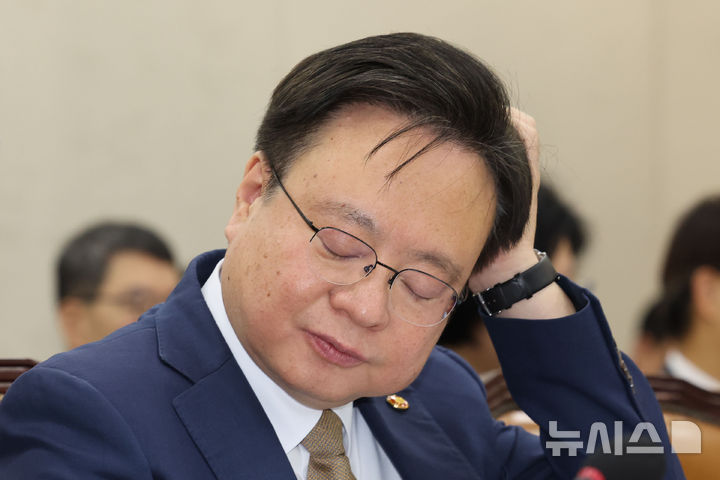EU summit opens in Brussels
Internal division due to conflict between the US and China
When developing AI, a core technology in developed countries
Dissatisfaction among member states with excessive regulation introduced
Rumors of ban on sales of internal combustion vehicles in 2035
Divided due to lack of coordination of industrial policy
Conflict erupts due to influx of refugees for 10 years
The rise of the extreme right adds to social chaos
◆ Europe in crisis ◆
enlarge photo
The leaders of the 27 European Union (EU) countries held a summit meeting in Brussels, Belgium on the 17th (local time) and began deliberations on strengthening competitiveness. At this summit, which runs until the 18th, major agenda items include strengthening competitiveness and refugee issues, reflecting the current atmosphere of the EU, which is facing a crisis of economic innovation and integration. From the first day, a sense of crisis prevailed in the conference hall, including the need to resolve internal crises such as the disappearance of innovation engines and division.
The leaders intensively discussed the main proposals of the ‘Strengthening European Competitiveness’ report presented by former European Central Bank (ECB) President Mario Draghi (former Italian Prime Minister) at the request of the European Commission last month. Former Governor Draghi said that the reality in Europe, where regulatory thresholds are high and private innovation investment is low, is driving the economy into a state of ‘existential crisis’, calling for more than 750 billion euros per year, more than 4% of Europe’s gross domestic product (GDP), to be spent on private investment. He urged them to do so.
The GDP growth rate of 27 member countries hit 6.2% in 2021 when large-scale liquidity supply began due to COVID-19, and is rapidly cooling down to 3.3% in 2022 and 0.4% in 2023. According to the European Commission, the growth rate forecast for this year is 1%. This is less than the 1.7% average growth rate for developed countries this year predicted by the International Monetary Fund (IMF). What is noteworthy is that in the aftermath of the economic downturn, divisions among EU member states are frequently appearing. As each country’s economy faces a crisis, nationalism becomes more prominent, and a unified voice is missing in various policy decisions such as industrial regulations and tariffs.
A representative example is the EU plan to convert 100% of vehicles sold in Europe to electric vehicles by 2035. According to a Financial Times report on the 16th, a day before the summit, EU climate commissioner Bopke Hoekstra said in a response to a European Parliament hearing scheduled for next month that the electric vehicle conversion law introduced in 2021 “cannot and should not be withdrawn.” contained a strong stance. On the other hand, European automakers and some member countries, such as Germany and Italy, are demanding a postponement of the conversion plan and flexible application, saying that the reality of regional companies facing a survival crisis due to Chinese electric vehicles should not be ignored. The EU, which once boasted synergy between member states as the world’s largest single market, appears to be splitting up amid dissatisfaction with unreasonable regulations amid an industrial crisis.
As the EU enthusiastically introduces regulations related to technologies such as artificial intelligence (AI), it is being pointed out that this is an obstacle not only to the advancement of big tech companies such as the United States but also to fostering innovative industries in the region.
Last month, entrepreneurs and researchers working in Europe published an unusually open letter criticizing the EU’s AI regulations. It is aimed at the AI law passed by the European Parliament in May. The AI Act includes provisions requiring AI services such as ChatGPT to pay a fine of up to 7% of global sales if they violate regulations such as personal information protection and prohibition of discriminatory expression.
49 corporate executives and professors, including CEOs of leading European information technology (IT) companies such as Spotify, Ericsson, and SAP, signed the letter. They raised their voices, saying, “Europe is at risk of falling further behind in the AI sector due to inconsistent regulations.”
The EU Commission’s recent vote to impose high tariffs on electric vehicles from China paradoxically clearly demonstrated how serious the disease of self-sufficiency among member states is. Five countries, including Germany and Spain, which must sell their own branded vehicles in the Chinese market, voted against it, and 12 member countries, feeling the burden of retaliatory regulations from China, also abstained. Bloomberg recently pointed out that EU member states are having difficulty coordinating opinions on policy issues and warned, “The combination of political paralysis, external threats and low growth will end the EU’s ambition to become a global power.”
Meanwhile, the war of nerves between member states is fierce over the refugee issue. As refugees have flocked to Europe over the past decade, divisions over border checks and refugee policies have become more prominent. Polish Prime Minister Donald Tusk unveiled a refugee policy package on the 15th, including a plan to temporarily suspend asylum applications for immigrants. On the 11th, Italy opened Europe’s first offshore ‘migrant repatriation hub’ in Albania. The EU has recently changed its position and is considering introducing an offshore repatriation hub like Italy.
[문가영 기자]


